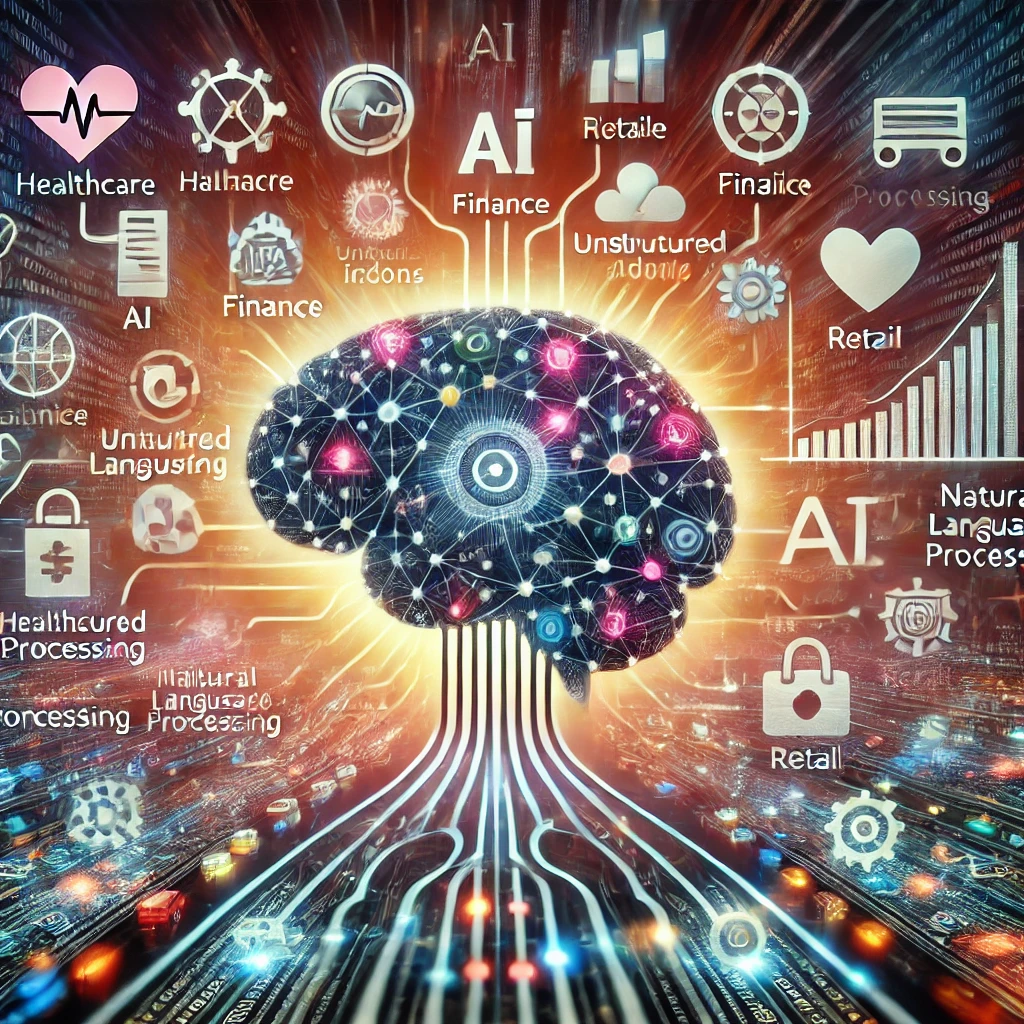Natural Language Processing (NLP) has rapidly become one of the most influential and widely used branches of artificial intelligence (AI) across various industries. From healthcare to finance, retail to manufacturing, NLP is transforming how businesses operate, making it an indispensable tool in the modern technological landscape. But why does NLP dominate AI applications, and what practical examples can we draw upon to understand its significance?
Understanding NLP: A Brief Overview
NLP is a field of AI that focuses on the interaction between computers and humans through natural language. It enables machines to understand, interpret, and respond to human language in a valuable way. This technology is the driving force behind numerous AI applications, including chatbots, virtual assistants, sentiment analysis tools, and language translation services.
Why NLP is So Dominant Across Industries
- Handling Unstructured Data:
- A significant portion of the data generated by businesses today is unstructured—think emails, social media posts, customer reviews, and more. NLP is particularly effective at processing and analyzing this type of data, extracting meaningful insights that can drive decision-making.
- Practical Example: In the retail industry, companies use NLP to analyze customer feedback from social media and online reviews. By understanding customer sentiment and preferences, businesses can improve their products and services, leading to higher customer satisfaction and loyalty.
- Improving Customer Experience:
- NLP enables businesses to interact with customers more naturally and efficiently. Chatbots and virtual assistants powered by NLP can handle customer inquiries, provide personalized recommendations, and resolve issues in real-time, all without human intervention.
- Practical Example: Many banks have implemented NLP-powered chatbots to assist customers with routine inquiries such as checking account balances, transferring funds, and answering questions about services. This not only improves customer satisfaction but also reduces operational costs.
- Enhancing Decision-Making:
- NLP allows organizations to analyze large volumes of text data quickly and accurately, providing insights that support better decision-making. This is especially valuable in industries like healthcare, where the ability to analyze clinical notes, research papers, and patient records can lead to more informed decisions.
- Practical Example: In healthcare, NLP is used to analyze electronic health records (EHRs) to identify patterns and trends that can improve patient outcomes. For instance, NLP can help predict patient readmission risks by analyzing clinical notes, enabling healthcare providers to take proactive measures.
- Driving Innovation in Marketing:
- NLP helps marketers understand consumer behavior and preferences by analyzing text data from various sources. This can lead to more targeted and effective marketing campaigns.
- Practical Example: A global consumer goods company uses NLP to analyze social media conversations about their products. By understanding how consumers talk about their brand, they can craft more effective marketing messages that resonate with their audience.
- Facilitating Global Communication:
- Language barriers have always been a challenge for global businesses. NLP-based translation services have made it easier for companies to communicate with customers and partners worldwide, breaking down language barriers and opening up new markets.
- Practical Example: A multinational corporation uses NLP-powered translation tools to ensure that their product information, customer support, and marketing materials are accurately translated into multiple languages, ensuring consistency and clarity across different regions.
The Future of NLP: What’s Next?
The use of NLP is expected to grow even further as AI technology advances. With the increasing integration of AI in business operations, NLP will continue to play a critical role in automating processes, enhancing customer experiences, and driving innovation.
One emerging trend is the use of Retrieval Augmented Generation (RAG), a method that combines NLP with advanced data retrieval techniques to generate more accurate and contextually relevant responses. This is particularly valuable in industries like finance and healthcare, where precision and reliability are paramount.
Conclusion
Natural Language Processing (NLP) is not just a buzzword—it’s a powerful tool that is driving significant advancements across industries. By enabling businesses to understand and interact with unstructured data, improve customer experiences, and make informed decisions, NLP is setting the stage for a future where AI plays an even more central role in business strategy.
As NLP technology continues to evolve, its applications will expand, further solidifying its dominance in the AI landscape. For businesses looking to stay ahead of the curve, investing in NLP is not just an option—it’s a necessity.






